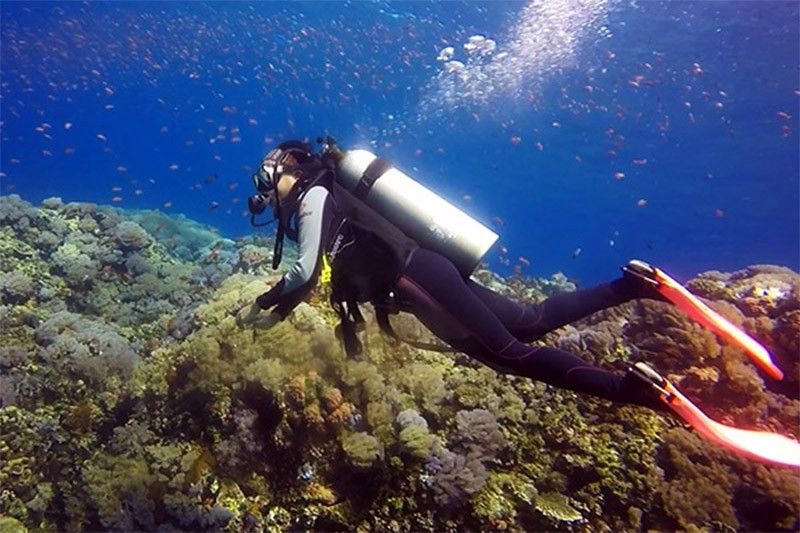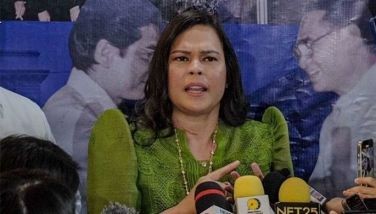DOT sets ‘Bring your own gear’ rules as recreational diving reopens

MANILA, Philippines—The Department of Tourism on Tuesday released the health and safety rules for recreational driving as the country reopens sports tourism activities due to the easement of quarantine restrictions.
The DOT’s attached agency, the Philippine Commission on Sports Scuba Diving, came up with the guidelines and was later signed by Tourism Secretary Bernadette Romulo-Puyat after the Inter-Agency Task Force for Management of Emerging Infectious Diseases’ resolution that included diving as an individual non-contact sport allowed in areas under general community quarantine.
The PCSSD Memorandum Circular No. 2020-001 or the Health and Safety Guidelines Governing the Operations of Dive Establishments in the New Normal covered instructions and regulations for the dive operations under the new normal; employee management, reservation and booking; check-in, reception, and general guest handling; facility-related policies; diver-specific policies; boat diving; dive center/shop operations; group dive trips; conduct of dive courses and/or trainings; and emergency response and medical clearances.
Among the new rules include bringing of own diving gears such as a set of scuba gear and equipment box. The guidelines also require divers to use hand disinfectants and hand washing throughout the day, practice physical distancing, and wear the protective face masks when not on an actual dive.
Under the PCSSD memorandum, the dive establishments are also mandated to provide a defog solution consisting of soap or shampoo for guests to use on their dive masks. Spitting on the mask or the use of saliva as a defogger is prohibited.
Even when on dive boats, boat crew and passengers, the DOT reminds them to always wear face masks and observe physical distancing. Dive boats must also be disinfected before and after use.
"Our priority remains the same with the reopening of diving and sports tourism. By following these guidelines, we continue to uphold the safety and well-being of the tourists and the industry workforce," Puyat said.
Puyat said that those who will violate the guidelines “will subject the dive establishments to appropriate fines and penalties, including the revocation of PCSSD accreditation.”
Meanwhile, the DOT and PCSSD encourage diving schools to implement distance learning or e-learning in teaching the theory part of the dive course.
“Dive schools are also advised to use current technology and digital platforms and to refer to their certifying agencies for further instruction, available materials, and training techniques,” the tourism agency said.
It added that if physical training is unavoidable, dive schools can set up classrooms following the physical distancing requirements with recommended smaller classes of 1:1 or 1:2 ratio.
Aside from these, Puyat also signed PCSSD Administrative Order No. 2020–001 or Guidelines on the Operations on Dive Establishments Under a Community Quarantine.
Under this administrative order, only dive establishments with PCSSD accreditation or DOT Certificate of Authority to Operate (CAO), if the dive facility is ancillary to an accommodation establishment, are allowed to operate at 50% operational capacity.
Just like in tourism destinations that reopened to tourists, guests are required to present a negative reverse transcription polymerase chain reaction orRT-PCR test result not earlier than 48 hours before arrival in the dive establishment as part of the Test-Before-Travel requirement.
The DOT said the release of the dive health and safety guidelines is a welcome development as the country has recently earned recognition as a premier diving destination.
Last August, the Philippines won the Best Overseas Diving Area award in the Marine Diving Awards 2020 in Tokyo for the overseas category.
Travel guide book Lonely Planet also mentioned diving spots of Puerto Princesa in its article titled "6 national parks around the world with surprisingly spectacular diving.”
- Latest
- Trending

































